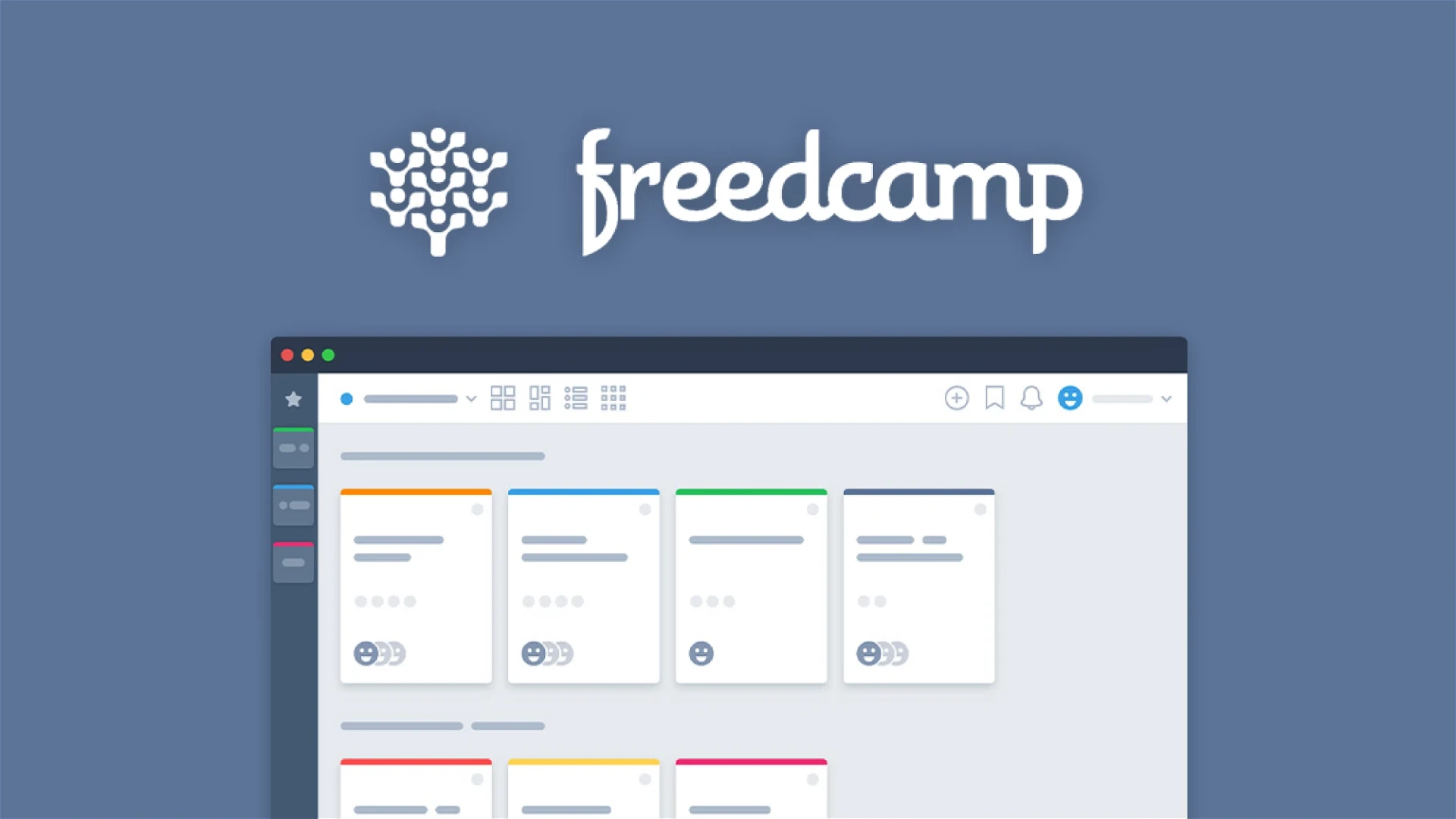Freedcamp is a popular project management tool that many teams use to streamline their workflows.
In this article, you'll discover a comprehensive overview of Freedcamp, including its pricing structure, notable alternatives, and additional key information to guide your decision-making.

What is Freedcamp? A Brief Introduction
Freedcamp is one of the best project management tools designed to help teams collaborate, organize tasks, and manage projects more effectively.
Founded in 2010 by Angel Grablev, it aimed to provide a free and user-friendly platform for project management.
Over time, Freedcamp expanded its feature set and introduced premium versions, but it has always emphasized its mission to offer core functionalities at no cost to users.
Accessing Freedcamp
To access or download Freedcamp:
- Visit the Freedcamp website at https://www.freedcamp.com/.
- Sign up for a new account or log in if you already have one.
- Once logged in, you can access Freedcamp directly from your web browser.
- For mobile access, search for "Freedcamp" in your device's app store (iOS or Android) and download the app.
- After installing, open the app, log in, and you're ready to manage projects on the go.
Key Features and Tools of Freedcamp
Freedcamp offers a variety of features and tools to assist with project management:
- Tasks: Create, assign, and manage tasks with due dates and priority levels.
- Discussions: Centralized platform for team conversations and updates.
- Time Tracking: Monitor time spent on tasks and projects.
- Calendar: View tasks, milestones, and events in a calendar format.
- Gantt Charts: Visualize project timelines and task dependencies in a gantt project software.
- Files: Organize and store project-related files and documents.
- Invoicing: Generate invoices based on project work and time entries.
- Milestones: Set and track major project milestones.
- Issue Tracker: Manage and resolve project-related issues.
- CRM: Manage client relationships and interactions within the project.
Integrations and Add-ons: Enhancing Freedcamp’s Capabilities
Freedcamp's functionality can be expanded with various integrations and add-ons:
- Google Drive & Dropbox: Link your cloud storage accounts to easily attach and share files within Freedcamp.
- Google Calendar: Sync your Freedcamp tasks and milestones to your Google Calendar to create project tracking software.
- Zapier: Connect Freedcamp with over 1,000+ apps, automating workflows across different platforms.
- Slack: Receive Freedcamp notifications directly in your Slack channels.
- OneDrive: Integrate Microsoft's cloud storage to access and attach files seamlessly.
- API Access: For those wanting to build custom integrations, Freedcamp offers API access.
These integrations and add-ons are designed to improve efficiency and offer users the flexibility to work within their preferred ecosystem.
Understanding Freedcamp’s Pricing Tiers
Freedcamp offers several pricing tiers catering to different needs. Each tier comes with a specific cost, and it's advisable to check the official website for the most up-to-date pricing details.
- Free Plan: This free project planning software provides essential project management tools such as tasks, discussions, calendars, and limited file storage. It's a good starting point for small teams or individuals.
- Pro Plan ($1.49 per month): A step above the free plan, it offers enhanced storage and additional features like Gantt charts and Google Calendar integration.
- Business Plan ($7.49 per month): Designed for professional teams, this tier provides advanced features like CRM, invoicing, premium support, and increased file storage.
- Enterprise Plan ($16.99 per month): Tailored for large organizations, the Enterprise tier offers the most extensive features, the highest file storage limit, and dedicated support.
Each payment plan offers a 14-day free trial period to test it before submitting your finances.
A Look at Freedcamp’s Mobile App
Freedcamp's mobile app is designed to bring the platform's project management capabilities to your fingertips, ensuring you stay connected and productive on the go.
The project management app has a user-friendly interface that mirrors much of the desktop version's functionality. You can easily create, view, and manage tasks, participate in discussions, and check calendars.
Notifications ensure you're always updated on project changes or when tasks are due.
While it offers a range of features, for some advanced functionalities or detailed project planning, the desktop version might still be preferable.
Tips for Maximizing Freedcamp’s Potential
To get the most out of Freedcamp, first familiarize yourself with its core features, then gradually explore the more advanced tools. Establish a consistent task labeling and categorizing system from the outset.
Regularly update and synchronize Freedcamp's calendar with other platforms you use, like Google Calendar, to maintain a unified schedule. Engage in team talks within the platform to centralize communication.
As your projects progress, make use of the Gantt charts for visualizing timelines and dependencies. Remember to integrate Freedcamp with other tools your team relies on.
And finally, always stay updated on the latest features and updates Freedcamp rolls out to ensure you're using the platform to its fullest.
Top Alternatives to Freedcamp: A Comparison
Several top online project software alternatives to Freedcamp are:
- Type: Visual task board (Kanban-style).
- Strengths: User-friendly, drag-and-drop functionality, flexible with power-ups.
- Weaknesses: Limited advanced project management features in the free plan.
- Type: Task and project management tool.
- Strengths: Robust task management, timeline views, and integration capabilities.
- Weaknesses: Asana project management can become complex for small teams or simple projects.
- Type: Project management and team collaboration.
- Strengths: All-in-one tool with to-dos, message boards, schedules, and docs.
- Weaknesses: No Gantt charts, and the flat fee might not be economical for smaller teams.
- Type: Work operating system for teams.
- Strengths: Highly customizable, colorful interface, and automation capabilities.
- Weaknesses: Slightly steeper learning curve for beginners.
- Type: Collaborative work management platform.
- Strengths: Detailed project views, time tracking, and strong reporting tools.
- Weaknesses: Can be overwhelming for smaller projects or teams.
While all these platforms offer strong project management capabilities, your choice of the best project management software should be based on your team's specific needs, size, and budget.
Conclusion
Freedcamp stands out as a versatile project management tool with a suite of features. Its adaptability is evident from basic task management to advanced functions like Gantt charts and CRM.
The platform is scalable, catering to both individual users and large organizations with various pricing tiers. Its integration capabilities further enhance its utility, connecting with the software ecosystem.
Familiarity with its features, consistent use, and integration with other tools can help users maximize Freedcamp's potential, making it a solid choice for teams aiming for project management.







